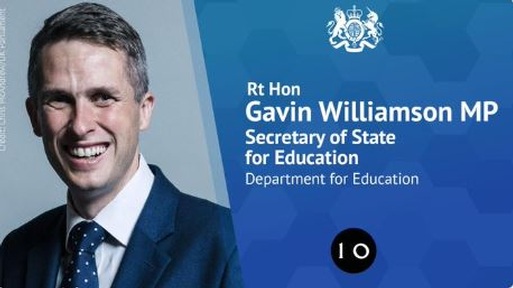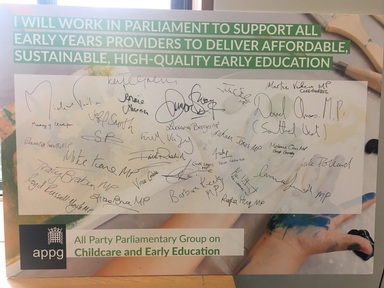'Devastated' nurseries shut down after 'lousy' funding causes heavy losses
Nurseries across England are closing because the Government’s 30 hour ‘free' childcare policy and mounting business pressures are forcing them out of business.
![]() Credit: SAMMYEK/Shutterstock
Credit: SAMMYEK/Shutterstock
Three and four-year-olds of working parents in England are eligible for 30 hours’ funded childcare from this September - a doubling of the current allocation of 15 hours - but the Government’s policy has proved to be the final nail in the coffin for many nursery businesses who have fallen victim to years of underfunding.
Six nurseries close up and describe their struggle to survive
Staff from six nurseries have said they have been left with no option but to close up and let staff go and have come forward to describe their individual struggles to make ends meet.
Anchors Nursery School in Rotherwick, Hampshire, closed in early July and its principal Eve Wort is angry with the Government.
“We have closed this month after 21 years.
“This is due to the Government’s ridiculous ill-thought-out 30 hour offer of free childcare. I cannot afford to offer this and refuse to compromise on quality. “If the Government just took out the word ‘free’ from ‘free childcare’ and called it subsidised, so that parents could be required to pay a small supplementary charge where necessary, the whole system would work and everyone would be happy. “The Government says it has costed 30 hours but it hasn’t costed for quality provision. I won’t be the only one closing.”
Outstanding but 'running at a loss of £1.95 per hour per child'
Fidgety Fingers in Harlow, Essex was rated 'outstanding' last September but will say goodbye to its children when it closes its doors for good on 26 July.
The nursery is shutting due to the prospect of doubling losses by providing 30 hours. Its government funding was reduced by 21p per child per hour in April and it has now been told it must swallow a further 21p cut next Easter.
Owner and manager, Jackie Neagle said: “The Government advertise that children aged three and four receive 15 hours 'free' early years education per week. What they don't say is that it's only paid for 38 weeks per year and it's often paid at a much lesser rate than nurseries and childminders need to charge to stay afloat.
“In our case we now run at a loss of £1.95 per hour per child, for each child who takes up a free place. We are not allowed to charge the parents 'top ups' to make up the difference. So we run at a loss for the first 15 hours that we give and from September 2017 the Government want us to give 30 hours free, so this will be double the loss.
“Fidgety Fingers is an ‘outstanding’ setting, in every area, four times over but we cannot do it any more. “We are so grateful to all the parents that have supported us over the years and for making voluntary payments, buying extra hours and contributing towards resources. But due to the increase in utility bills, compulsory staff pensions and increases of the minimum wage and living wage, the situation has become unsustainable.
“I honestly believe the Government have no idea what Fidgety Fingers and settings like us actually do for the children and families in our care.”
July closure a 'huge loss to the community'
After 40 years, Rising Stars Preschool in Eastbourne is closing on 20 July because the committee can’t pay staff and cover rent on the funding rate offered by East Sussex County Council. The council’s 30 hour rate is £4 but Rising Stars has calculated it needs at least £4.50 to break even. A total of 20 to 28 children aged two to four attend the nursery in a church hall.
Rising Stars has had to tell families the sad news and is working with them to find alternative places for September.
Consultant to Rising Stars, Kate Peach, said: “A total of 94 per cent of children attending are using free hours so there is no opportunity to cross subsidise with income from paying families. “The preschool is a stunning, purpose-built space, serving a less affluent area. It is a huge loss to the community. The church reduced the rent, which was very reasonable in the first place, but even that wasn’t enough. The finances don’t now stack up.”
‘Lousy' funding shuts Secret Garden Nursery on 23 August
Owner Linda Meacher, who has run Secret Garden Nursery in Skegness for eight years, is closing it on 23 August. She said: “95 per cent of the places we offer are funded places as we are in a deprived area and 30 hours means that running the nursery is no longer a viable proposition. “Any money I have ever made from Secret Garden has been ploughed back into the business and I am walking away with nothing.
“Nurseries are so important for children at the beginning of their lives and the funding is lousy. The people who choose to work with young children are so passionate. It really hurts to make those great staff redundant.”
'Devastated‘ by closure after 'paying £450 per week of my own money’
Pip-Kins Day Nursery in Exeter closed in February after 21 years. Owner Sally Langdon shut Pip-Kins and sold to a buyer who changed the building back to residential use. The Grange Nursery in Worcester also shut in February after operating for 24 years.
Jane Dallard of The Grange Nursery said: “Our rent was comparatively high and we set our ratios high. The 15-hours-per-week funding falls short of what we need and after years and years of underfunding, we feel we were dragged right down. It was like a drip, drip, drip, and the prospect of 30 hours was too much. “By December I was paying £450 a week of my own money to keep the preschool open and we finally had to close at February half term which was devastating.”
17% of nurseries polled expect financial loss in 2017/18
The National Day Nurseries Association (NDNA) has observed an upturn in the number of nursery closures among private and voluntary nurseries.
The NDNA’s Annual Nursery Survey, published in April, revealed a fifth of nurseries that responded, were not planning to deliver 30 hours and 17 per cent of settings expected to make a financial loss in 2017/8.
A survey by the NDNA of local authority funding rates for 30 hours in June showed the average rise in hourly rates was just 40p, an amount the NDNA chief executive Purnima Tanuku dismissed as ‘totally inadequate’ to allow many nurseries to deliver 30 hours.
The chief executive said: “The nurseries closing tend to be small but much-loved and long-established preschools.
“As the voice of the sector we have long been calling for better funding rates to allow nurseries to balance their books.
“We have warned that nurseries will be pushed out of business by low hourly rates for ‘free’ places and it appears that this is now starting to happen. Our fears are that more will follow.”
Latest News Analysis
 06-Aug-19
Nursery boss says 'cultural capital has always been important, it shouldn't be new'
06-Aug-19
Nursery boss says 'cultural capital has always been important, it shouldn't be new'
 25-Jul-19
Gavin Williamson appointed education minister
25-Jul-19
Gavin Williamson appointed education minister
 17-Jul-19
Flexible Working Bill for all jobs gets MPs approval - delighting parents, disabled and carers
17-Jul-19
Flexible Working Bill for all jobs gets MPs approval - delighting parents, disabled and carers
 03-Jul-19
MPs blame government policies for nursery closures in deprived areas
03-Jul-19
MPs blame government policies for nursery closures in deprived areas
 14-May-19
Number of schools wanting to pilot Reception Baseline Assessments 'embarrassingly low'
14-May-19
Number of schools wanting to pilot Reception Baseline Assessments 'embarrassingly low'